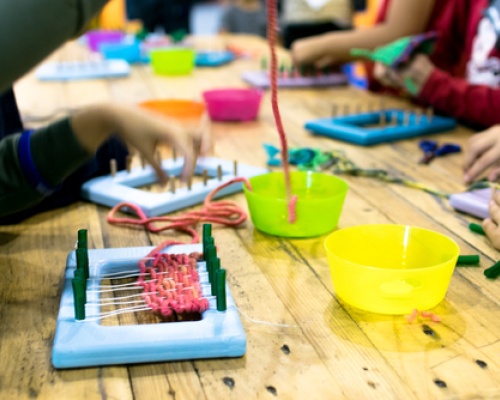Why Making Matters
Date
Education trends come and go (and come back again), but most makers will agree that the Maker movement is more than just another trend. Maker ideals put an emphasis on creating, discovering, and promoting a growth mindset to build key skills that will enable students to thrive in STEAM-powered world. And with the prediction that 65% of today’s primary school students will end up at jobs that haven’t been invented yet, it’s clear that the Maker movement is setting up students for success.
So why is the Maker movement so impactful? One reason is that making powers curiosity, which is a universal experience. While learning-by-doing has long been recognized as a powerful educational context, there is a euphoria associated with bending a material or system to your will and making something work. Makers can experience a very personal, tangible level of success on a regular basis.
Making is a Way of Viewing the World
Making is more than just how we do things. Making is a way of viewing the world with the personal confidence and competence necessary to overcome any obstacle you encounter, even if only to discover that you have more to learn. In the 21st century, making is the best thing students can do to prepare themselves to solve problems that we haven’t anticipated, all while learning that failure is a constructive piece of the process.
Children in schools where making is embraced report that their ability to navigate the world improves. They look at themselves, the challenges they confront and their potential through an enhanced pair of epistemic lenses. When the same materials, technologies, tools and practices are found in the physics lab, art studio and auto shop, schools can stop sorting children into winners and losers. We have long overvalued learning with one’s head. The future is going to require citizens who are equally capable of learning with their head, heart and hands.
Gary Stager, Ph.D., Guide to Creating and Inventing with Technology in the Classroom
It’s Relevant for the Youngest and the Eldest Students
Making has no age restrictions. Anyone, from the youngest to the eldest, both students and professionals, can find common ground through maker experiences. This shared curiosity connects people and provides a rich setting for learning through experiential, project-based, creative experiences embodied by the Maker movement. It equalizes the playing field between students of all ages, and even offers teachers to become the learners as they work alongside their students.

